#and he describes the song as queer
Explore tagged Tumblr posts
Text
no no listen i see the vision

what were the other ones then
#'but sarah very is camp and essentially neil's coming out album and bilingual has metamorphosis--' shh give me a second#yes all of their albums are essentially gay/queer in a sense due to the fact their experiences as gay men are going to influence#the songs and themes and perspectives and narratives#that's absolutely true#HOWEVER#in the case of very and im going to steal my friend's quote but it is gay as a byproduct of the relationship neil was in when they wrote it#but the album by and large is about neil falling in love and then that relationship breaking up#yes the visuals and aesthetic are camp but that doesn't mean then nonetheless as a whole isnt as well even though its not camp#(and classifying very as 'camp' is a whole other thing but you get it)#what makes nonetheless interesting is how queer themes and people and inspirations are woven into the album#new london boy is undeniably queer given it covers neil's queer experience and finding himself and moving to london#i view nonetheless and its queerness as essentially a successor from will-o-the-wisp on hotspot#you have that intrigue. the longing. the mystery. the tension#neil drawing from christopher isherwood as inspiration#and he describes the song as queer#elements of nonetheless reflect that#feel deals with a gay relationship based upon intense devotion but also immense longing. neil mentioned wilde as a partial inspiration so#that play on the narrator using friend when obviously the other person being their partner/lover adds some intrigue there#dancing star deals with nureyev and his defection and a core theme of psb and queer experience of escaping to a better life#a new bohemia references gay activist wisconsin group les petites bon-bons and the loss of community and artistic spaces and scenes#that largely had queer artists and theorists and activists as a part of them#love is the law is influenced by oscar wilde in france after he left prison#all of these queer references and experiences and themes are essential aspects of the album and an overall queer theme#it's all neil having a nostalgic reflection onto a queer past and history and experiences that in some ways no longer exist#or don't exist in the same way#even schlager has that theme of looking to the future and why am i dancing focuses on releasing inhibitions and embracing oneself#and then each music video has been queer. loneliness is. yeah. dancing star w nureyev + new bohemia w margate and majority queer cast#the key thing is intentionality. the queerness and references and experiences and all of it has been intentional#rather than a byproduct of their personal experiences and reflections of what is happening around them that just is in their work#anyway i will shut up now sorry this is long omfg. fair to disagree btw
592 notes
·
View notes
Text
*Listens to a Post-Traumatic Manifesto song* Omg this girl is literally me *listens to a Post-Traumatic Manifesto song* Omg this girl is literally me *listens to a Post-Traumatic Manifesto song* Omg this g
#more specifically disposable girl is 100% me in middle school specifically#i related to faineant girl so much it made me start looking into chronic fatigue syndrome#i dont think i even have to specify with irreverent girl. i've talked manymanymany times about i grew up with a pastor as a parent#and the resulting Queer Trauma of it all#and i just listened to chocolate-box girl for the first time and.#like#he is literally just like me#he/she user who is autistic with ocd depression and bpd#she's fat and loves to bake and she LITERALLY EVEN HAS A POKEBALL ON HER HOODIE IN HER REAL-WORLD DESIGN#and we went through the exact same thing -- like every detail described in its song is also the shit that happened To Me exactly#like that's Just me#'if it's not real it's not a warning sign... it's all fictional right?' WITH THE L0LI ANIME IN THE BACKGROUND#FUCK OFF GET OUT OF MY HEAAAADDD GET OUT OF MY MEMORIES /positive#anyway.#the post traumatic manifesto#azure does a thing
17 notes
·
View notes
Text
quadeca fandom so gay i sometimes forget that ben himself is cishet
#he's an honorary queer ❤️ that's for sure after the absolute banger that is the HUMAN mv#and i see so many different gay interpretations of his work in this fandom it's so funny#seen people describe his love songs as if he's being possessed by a lesbian at the time of writing and I AGREE#quadeca
29 notes
·
View notes
Text
youtube
LGBT w kulturze polskiej
Wały Jagiellońskie i "Tylko mi ciebie brak" z 1981 r.😉
#the song lyrics is meant to be a letter from jail describing the prison life and repeating ''the only thing that I miss is you''#there's mentioning how he misses his lover's little fingers and hot kisses and so on#only to finally reveal his lover's name is Stefan👍#tylko mi ciebie brak#rudi schubert#wały jagiellońskie#waly jagiellonskie#polska lgbt#lgbt polska#polish cabaret#polish humour#queer#lgbt#gay#polish culture#polish#polska kultura#polska#Youtube
1 note
·
View note
Text
Our wedding day
❥ Nanami Kento x m!reader
❥ What if Nanami Kento had always loved you, yet never came out? Now he has to watch you in the arms of another man, a man that could've been him, if he wasn't such a coward.
Content. Queer Nanami(I'll let you interpret his sexuality here<3), internalized homophobia, drama drama drama, Reader is married but Nanami still wants him, not proofread, I'm not sure what else to add so have fun reading!
A.N. Im feeling manly and depressed today
masterlist

There was something they called this feeling.
The feeling of your heart tearing itself out of your ribcage, reaching for another that you thought was unattainable. The feeling of your throat refusing to let you breathe like the weight of living was too much for it. The feeling you’ve been trying to suppress all these years — the exact one that Nanami had always seemed to make you feel.
Even now, with a ring on your finger and your newly-wedded husband just a few rooms away, it never really seemed to leave you.
“The reception party is inside Kento,” You’re cornered on a balcony, the hosts’ voice fading in and out as your guests enjoy your reception party. “Go back inside.”
“Can we talk?” Nanami's voice is cautious. Low and careful to not scare you away back to your husband , a man that actually deserves you, they described him.
“No. Get back to the party,” You wave him off, turning around to lean against the railing and look off into nothing. Yet you could still see his face, still hear the beat of his heart as you dismiss him. He doesn’t take the hint.
He calls out your name softly, with love he didn’t dare name, like he didn’t lose that privilege years ago. “I’ll be quick.” Nanami takes a slow step towards you. “Just– please.”
“Don’t ‘please’ me—” You twist around, mouth opening to snap at him, yell and scream at him to leave you alone. To stop trying to piece together the heart he broke and stomped on.
Your lips seal into a line, breath almost hitching as you see his face again. Hurt and regretful. Beautifully damning, your bittersweet regret. Something you wanted to leave in the past.
You suck in a breath, voice coming out softer than you intended it to. “You don’t have the right.”
“I know I don’t. But can you give me the right just this once? The last time?” Nanami steps closer. Wind blows through his blonde hair, the same locks you had tangled your fingers in once upon a time. Before nanami had told you that the two of you were not meant to be together. That it was wrong. “Just listen, at the very least.”
“Why should I?” Voice like venom, you snap at him. Even as tears threaten to claw at your eyelids, invisible hands grasping at your throat. “Why should I act like you didn’t choose stability? The easy route?”
“I didn’t—” Nanami starts, but you cut him off with a loud scoff.
“Yeah right.” You barked, rolling your eyes. You shove his shoulder aside to get past him, but that does nothing to stop him from grabbing your wrist. His grip was tight for a moment, the fear of losing you taking hold. But his grip loosens when he remembers he’d already lost you.
That doesn’t mean he can’t get you back again.
“It wasn’t easy for me. Its been my biggest regret for years now.” Nanami sputtered. The world spinning as you feel the sincerity in his voice, as if that would be enough to get back the love the two of you had. The same love that Nanami refused to call anything but that.
“I love you. I always have.”
Until now. When it was too late.
“I was just a coward— stupid and young. You were always better than me with feelings.” He continued, his fingers still tracing your pulse. Still warm against your wrist. Burning up and spreading all over your skin.
You could feel your heart break all over again. Memories flashing behind your eyes, of all the nights you two spent together and every meal you two shared. All the songs– the cursed tape where he had written and recorded a song just for you.
You responded by making one for him in return, a love song with a note attached.
“I’m married, Kento.” Your voice trembled as you said it, pulling your arm away.
You had confessed to him that day, through a tape and a record player.
“Let me go.”
And he broke your heart with a confused, almost hurt glare as he genuinely screamed at you for the first time. Like the truth of what the two of you were stung him. Like it was a betrayal that you’d acknowledged it. To him at the time, maybe it was.
He let go of your wrist, your arm dropping to your side as you wordlessly walked back into the venue. Back to the arms of a man who wasn’t him.
“Okay.”

#jujutsu kaisen#jujutsu kaisen x reader#jjk x reader#nanami x reader#nanami x male reader#kento nanami x male reader#kento x reader#kento x male reader#nanami x m!reader#kento nanami x m!reader#nanami kento x reader#jjk angst#jjk fics#nanami angst#jjk scenarios#angels fics •°. *࿐
182 notes
·
View notes
Text
So the recent alnst comic dropped and put the entire fandom on fire. But I do want to talk mischaracterization and how the alnst fandom has an abundance of it. Every fandom has it to various degrees because fans will always reach their own conclusions, how far it is from the creator’s intent differs from person to person. But alnst fans have such strong takes and everyone is so aggressive in being right. Two fans can have greatly different assumptions of a character. A big part of that I believe is because except for comics that give some context, most of its storytelling is done through visuals and songs.
Those are less concrete mediums. The meaning of a simple hand movement or lyric can be taken in differently from person to person. But I’ve always felt that as long as you understand alnst is not a black and white story, that there are no good or evil human characters you should be able to somewhat put pieces together.

I don’t see how some ppl gathered that Mizi is “the true villain” or smth. Her willful ignorance is definitely a coping mechanism and this adds a lot of complexity to her. And lowkey after sitting on it, some fans do reduce Mizi to a single dimension like Till, that boy, and even Sua. She isn’t a “perfect victim” who is innocent and has no flaws bc that eliminates her humanity. Most of the ppl in her life projected that image onto her so she felt compelled to fit into it. She couldn’t stop Till from having a crush on her even though she rejected him and she couldn’t severe the codependent relationship she had with Sua. Plus all this described to us from Mizi’s POV and given Ivan’s entire deal as a character I don’t think we’re supposed to 100% trust what she’s saying about herself.
In regard to Till, I sympathize with him to an extent. I understand you can’t control who you like and it’s hard to move on. Add that on top of this horrible environment where desiring Mizi might’ve been the few things to keep him going. But I need people to really see the truth: his crush on Mizi was fucking shallow.

He didn’t really know her nor try to. Yes he had this unrequited crush but it is not Mizi’s responsibility to make him better about it. I have been in Mizi’s position multiple times. A guy likes you, you express you’re not interested and they insist that they’ll still want you. The whole time they’re not even close to you and you’re like a prize to them. I’ve been in Mizi’s position and it’s fucking uncomfortable.
She also risked her life returning back to save Till in r7 so I don’t think she was plotting his demise on some villain shit. Mizi still saw Till as her friend I doubt she’s faking those emotions.
Finally it is very essential to remember this series is created by two queer korean women living in SK. And if you know anything of the korean male population, it’s not great. I mean men aren’t in general but in sk it’s like….in the 7th circle of hell. So anyone villainizing Mizi please take a minute to really process her character because she’s probably inspired by their personal experiences.
#idk I think this is a complicated situation and we’re dealing with complex characters#I applaud vivinos and qmeng for going this route#but I need fans to relax#my goodness#alien stage#alnst mizi#mizi#alnst till#alnst#vivinos#qmeng#animation#fyp#tumblr#tags#alien stage mizi#comics#reveal
105 notes
·
View notes
Text
god I love how ed keeps subverting gender norms and expectations. he's literally named for his beard, he's the most feared pirate on the seven seas, the legends describe him as some sort of devil-like figure with glowing eyes and a head of smoke, all the portraits of him are these hypermasculine caricatures, so you'd expect him to be toxic macho man but NO. he's ed teach. he's queer. he ties his hair in a bun. he has a shiny dangly earring. he paints his nails pink. he loves soft fabrics. he drinks his tea with seven sugars. he wears pearly necklaces. he cries a lot. he paints the bride cake topper to look like him. he wears eye makeup. he's emo. he writes a sad breakup song. he actively dislikes being blackbeard and putting that mask on anymore. he's everything to me he's one of the best characters of all time
#our flag means death#ofmd#edward teach#ed teach#blackbeard#sofi.txt#that's what it's all about has been since we first met him!!!!!!#like we know this but damn the trailer. those LOOKS#anyway that being said. nonbinary ed rights#1k
2K notes
·
View notes
Text
In this post I pointed out that the whole point of The Wheelers, as also described in The Duffers' masterclass, is that conformity and the picture of social perfection is unsustainable and will inevitably collapse in on itself. Specifically, despite being the most bullied, Mike Wheeler is the perfect of the perfect as a part of this white nuclear family, being straight, and beating the others who have those things out too by being a man. He is a golden boy, so it has to be him that destroys the illusion once and for all (I do recommend you read that post if you have the time.
But the word I'd like to dwell on is "unsustainable". Not only did I in that post detail that nothing holds the impact on reputation of queerness and nothing is a secret behind the curtain of conformity the way queerness, it also needs to be unsustainable.
Unsustainable as in one attempted to sustain it but gradually failed as they became more desperate over the course of 5 scenes until mask finally fell completely. Unsustainable means planted plotline in this context. It does not mean revealed secret in a surprise shock value twist sense. It cannot be "I have had a superpowered girlfriend this whole time" (not just for my many reasons I've listed before), but because that secret in no way descended. It was constant and unmoving; his secrecy of it has not wavered - it is just a fact. It means he has to have already been falling apart in pursuit of keeping the specific secret that would ruin his family over the course of the last 4 seasons.
"Mike went downhill in season 3". Exactly. Because what he was doing wasn't. sustainable. 'I thought he would be better at the end of season 3 and first episode of season 4 but then it happened again'. Exactly. He grappled desperately to hold the mask up but it kept falling apart again. Because it wasn't. sustainable.
There is no way to represent unsustainability but to represent the arc from successful lying - to the point that it convinces the audience of the character's happiness - slowly slowly crumbling until it looks just a little off but redeemable to the original happiness, then flawed, then deeply flawed, then crumbling beyond repair,...then honest.
So now the question becomes not "why was he acting weird?" but "what were we fully convinced made him happy in season 1?"
Straight romance. Eleven. It rescued him from the depths of non-identity-specific bullying, how beautiful.
And it's also why I've noted that current viewers going into it with an awareness that it is 4-5 seasons, not 1, have a different perception because they have a different orientation of the themes. They see it for what it is. Part 1 of a 4-5 season story with happiness he achieved too early to be "it". Either because the rest of the story isn't about their romance and it's sidelined but happy or because their romance's happiness false. And then the show keeps their romance front and center...so we know which one it is.
In season 1, we were told what would make him happy was straight romance. So in season 2, we believed him in his pursuit of it. Until in season 3, he started acting weird - out of character, which many blamed on the writers but people are also often described as being capable of doing themselves. 'Not himself'. By season 4, he descended into unexplained and widely agreed upon as unexplainable, random. Random can also be translated as frantic, desperate.
We know now, knowing that it's 5 seasons, or even if you watch just thinking it's 4. We know the themes are that conformity is unsustainable. We know that The Wheelers are the pinnacle of this image thematically - Nancy spells these things out for us in season 1. And we've seen this story before, we've watched it in movies, we've heard it in songs. We know that it looks like a false performance of happiness early in the story that slowly crumbles until we're just confused and crumbles further until its revealed that it was all a complete lie that was just so practiced of a fake smile that it managed to convince us too.
We know this. We won't pretend like we don't. We've seen it a million times before.
So we watch as Mike kisses El for the first time and looks happy! Convincingly happy! Only a fifth of the story in!-..........oh
#byler themes#stranger things#the wheelers#stranger things themes#byler#mike wheeler is queer#mike wheeler#there is this belief that you cannot be convinced of a lie by a character - especially a protagonist#that you are incapable of being fooled in any context but a whodunnit. that unreliable narration cannot work on you and the only successful#twist to pull the wool over your eyes is a sudden and shocking one. that your perception of storytelling unless directed by an antagonist#themself is objective reliable#this belief is egotistical and false.#you are capable of being successfully lied to by protagonists.#and more importantly: you are capable of being successfully lied to by WRITERS#- that's what it is. they don't like the idea that they are manipulatable by real people. but you are. that has been the very nature of#storytelling since fiction was created: to convince you of something that isn't real.#they just layered it more. they convinced you the world was real. now they convince you it's real in one way when it's actually real in ano#her. it's all the same lies they all work the same way and they're all fooling you. they were supposed to. and you knew that. it's okay.
94 notes
·
View notes
Text
Seonghwa and "Be Free" Girl
or, my attempts to (further) queer the lore
We first meet "Be Free" girl in the Fever diary film. This is how Seonghwa describes the encounter:
She, who was dancing to the beat.
Everything around me froze for a moment. The only thing I could hear was the sound of music coming from her earphones. She was moving as if nothing mattered anymore.
Common sense, rules, and this tough world didn’t have power over her moves. Right this moment, my world broke along this snowy road. Something changed in me, but I stayed still and couldn’t say anything.
She dropped a bracelet that had ‘Be Free’ engraved on it. Ever since that day, I went to the same place at the same time.
But, she never came back. I didn’t know her name or address. Just like the ‘Be Free’ bracelet she wore, she freed herself away. Since then, music never sounded the same again. I can no longer distinguish the structure, code, or genre of the song. Only the lingering feeling of that day remains.
As a recently matriculated lore-tiny, I was struck by the introduction of this character into the lore; none of the other members had an on-screen parter in their characters' backstory.
Watching that Fever Diary clip, you see so much yearning on Seonghwa's face. He does not want Be Free girl, he wants to be her.
In World A, Seonghwa is bound by rules and logic. In the segments bookending the Fever Road series, he is shown tied to a chair, a dreamlike manifestation of his internalized oppression.

However, his encounter with Be Free girl completely rewires his brain, enabling Seonghwa free himself from rigid expectations:
From now on, I will plan what I will do. I will run away from this world stuck in a rut to do what I really wish to do. The music in my ear will be my one and only plan in life.

It's clear that when developing the very complex lore for the Ateez universe, KQ sourced from the member's IRL backstories: Wooyoung and his stage fright; Jongho and his athletic aspirations; Mingi's social anxieties. For Seonghwa, it's clear that his source trauma stemmed from the pressure he placed on himself to meet certain self-imposed and industry-imposed standards to look and act a certain way. These issues worsened during Inception era, which coincided with the Fever Diaries and the canonical origins of their lore.

During Seonghwa's recent birthday live, he was asked to comment on an old pic of himself during the Inception comeback and it's clear the memory pained him:

It's notable to me that lore!Seonghwa liberates himself from his dysmorphic mindset after seeing a young woman fully at home in her body, uncaring if she looks silly or awkward dancing alone. To Seonghwa, she embodies emotion, passion, freedom.
The Inception music video not only shows Seonghwa setting metaphorical fire to the mindset that once harmed him, but he also becomes Be Free girl, dancing as she danced in the exact same place he first encountered her:

Seonghwa's transformation in the lore has a ripple effect: in the diaries, he is happy spending time with his friends members in their warehouse sanctuary, dancing and performing to his hearts' content.
Wooyoung even credits Seonghwa for helping him overcome his own struggles:
Now I have friends to talk to about my feelings. As soon as I saw them, I knew right off the bat, they’re like me. Oh, Seonghwa was a little different. He never tried to do anything the traditional way, he was always ‘HIS’ way.


But their sanctuary is soon stolen from them and Ateez find themselves unmoored from their dreams; that is, until Hongjoong finds the Cromer and they embark on a trans-dimensional adventure to World Z.
In World Z, Seonghwa wields his non-normative self as a weapon to combat Strictland's oppressive government, who have banned the arts and used AI-powered technology to subdue human emotion.
In the trailer for Movement, he dances to disrupt the system.


We again encounter Be Free girl in The World: Outlaw. Ateez have infiltrated Prestige Academy with the goal to "awaken" the elite children from the government's systemic control of emotion, thereby destabilizing the ruling class.
It turns out that the World Z's Be Free girl is a student at Prestige Academy and, to Seonghwa's dismay, she leads the disciplinary committee responsible for enforcing the rules and punishing any students exhibiting emotion.
Seonghwa went out into the hallway, watching the back of the girl as she walked away. The strong, cold looking girl was the one that Seonghwa had been looking for for so long. Though of course, the same girl in World A and World Z seemed very different.
That girl he had once encountered back in World A. He came across her by chance, on a day when the rules of life, logic, and efficiency were weighing down his thoughts. She danced freely, letting her body move along to the music playing on the street. After meeting her, Seonghwa came to realize many things, and everything changed. But on the day he finally decided to muster up his courage and speak to the girl he had been observing from afar, she was gone. Only a bracelet engraved with ‘Be Free’ was left in the spot where she had once danced.
For a long time after, Seonghwa would often go and wait for her there, but she never appeared again. What should I call this feeling? Is it admiration, gratitude, or curiosity? He wondered. Although still unsure what his feelings were, he continued to look and wait for her. But Seonghwa never expected that he would meet her here in World Z, as the head of the student group Thunder, a group considered elite even within Prestige Academy, which only the best talents of World Z–and the ones most loyal to this system of control–could join. He didn’t know whether to be happy or sad. However, just as she had changed his life and set him free that one day, Seonghwa was determined to save her from this world.

To his and our relief, Be Free girl turns out to be a member of Thunder, a secret organization dedicated to overthrowing Z's government from within. She has been suppressing her own emotions as a mechanism of survival in order to gain access to Z's inner circle.
Seonghwa learns this after Be Free girl saves him during an encounter with the Guardians, separating him from the group. Yeosang later observes that Seonghwa did not seem to leave under duress:
"And his face when he grabbed her hand and walked off in the quad, it was like he found someone he missed. That look was so odd I kept thinking about it. It's the same look Seonghwa gets when he talks about the girl with the 'Be Free' bracelet he was looking for back in our dimension."
Seonghwa returns to share what he's learned from Be Free girl, but keeps some things to himself. Be Free girl told him of her own "awakening," having seen the Grimes siblings singing on the streets and finally understanding "beauty." This made her resolved to restore beauty and artistic expression to World Z.
Seonghwa cannot help but compare her to the Be Free girl who inspired him in World A:
The girl with the Be Free bracelet danced freely with no care or worry as to how she looked to other people. Seonghwa, mesmerized by the beauty, saw himself in her and from that day on, started to walk a new path free from restricting rules and principles.
The Thunder girl, she reminds me of the girl from our world. And she reminds me of myself, Seonghwa thought. Moved by the feeling of beauty stirred within her after listening to the songs of the Grimes siblings, she started on a new path away from the principles and rules of this world. The moment he first saw her at Prestige Academy, behind the girl's cold exterior, Seonghwa had clearly felt that heart - that very yearning for beauty.
I think it's interesting how much Seonghwa identifies with Be Free girl, and I cannot help but recall his distinctly queer styling during The World series.



Not coincidentally, this album era is when Seonghwa really began to experiment with his own taste for "genderless" fashion, which continues to be a major theme in his stylistic expression.



Be Free girl narrates World: To The End, after Ateez is abruptly sent back to World A during a climactic confrontation with Z:
I wonder if you safely arrived back home. When the first Cromer broke, you said you arrived in the past. Did you arrive on time this time? Are you still dancing and singing together there? I hope all your wishes come true: finding your family, gaining independence from your strict father, standing on stage, meeting may people, and making lots of money. You've changed many people's lives, so I'm sure you've succeeded. Whatever it may be, I hope you remain 'free' without being too tied down, just like she said, the one who resembles me.
Unfortunately, her wish for Ateez does not necessarily come true. Back in World A, the boys find themselves drifting apart as their memories from World Z fade. They each pursue different lines of work, becoming successful and wealthy, but lacking the passion that once fueled their adventures together.
Seonghwa becomes a firefighter. He tells himself it's something Be Free girl would've encouraged:
Knowing her, she would have told him to move and find a way to save himself first. Saving oneself is the first step to saving other people. 'Fine. Then I'll start by saving myself from this anxiety.' So, Seonghwa began studying how to rescue people in different kinds of crises.
Sure, it wasn't his dream, but that also wasn't a good enough reason for him to give it up. The impact of this job was clear and real compared to the vague dream he shared with the members, and he just couldn't find any justification to quit.
And, thanks to his welcoming face and striking physique, Seonghwa was selected as the Fire and Disaster Headquarters' yearly calendar model. Posing for the camera, he felt both pleasantly nervous and oddly empty. For so long, he had wanted nothing more than to be photographed and seen, but could never make that dream come true... How ironic that he could do so now, but only as a firefighter.
Seonghwa can rationalize it all he wants, but he's once again cut away pieces of himself to present as socially acceptable and palatable in this new phase of his life. He's regressed, but he cannot see the truth for himself.
In Golden Hour: Part 2, he tries to convince Jongho that this is what he really wants:
Jongho met his eyes silently, as if to say that he was ready to listen. Seonghwa began describing those who had just become firefighters. There is a time when a sense of duty and a desire to save people becomes a kind of "passion" in and of itself. During this time, new firefighters – as if they have never known fear - would do anything to save even just one more person. They would dive into the heart of a fires or risk their lives. Then, they make a mistake and realize that they might actually die like this. That's when they finally come to understand their seniors' advice, Seonghwa continued.
Seonghwa grit his teeth and repeated the words he had heard over and over as a student: "Saving oneself is the first step in saving other people."
Whether you subscribe to the theory that Ateez will use the sorpo to once more hop between dimensions OR that Golden Hour takes place in a dream conjured by Z, the idea of "saving oneself" remains a key theme in Seonghwa's arc over the course of the lore.
Be Free girl gave him the strength to save himself the first time, a process that gave him the emotion, beauty, and empathy to inspire others in the same way.
I hope that in this next installment, wherever the lore takes us, Seonghwa can reclaim his passion and fight for his freedom.
.
.
Of course, we have a third "appearance" of Be Free girl in Spin Off: From the Witness, which seems to exist outside of our linear timeline and may even exist in a completely different dimension with a completely different set of Ateez.

The epilogue focuses on this other Seonghwa, who has a very familiar encounter with a certain bracelet.


I wrote this meta as a way to work through what I thought was one of the most interesting parts of the lore, because it's clear how much this storyline is already meta-textual. These are just observations and speculations. Ateez gave me a fun sandbox to play in!
I would love to hear your thoughts!
Special thanks to @loving-that-officey-feel for being my lore tutor!
75 notes
·
View notes
Note
Please give the fandom your take on Hongjoong!! Especially if you see him as not as fragile as I see him ( bc I don't want to worry over him lol). Please. I beg. If you would.
You gave me a free pass to ramble about Hongjoong and i fucking ran with it, so i hope you enjoy a whole lot of whatever the hell this turned out to be. Reading it back, I don't know if this answered your question at all, but I had a lot of thought writing it, so thanks again, for asking <3
once again, a warning: this is over 1,000 words long. No, I do not have very many friends and I don't know why you would even bring that up when you can barely even tell ahaha
The first thing i think of when I think of Hongjoong is his passion and compassion. He’s the reason I paid any attention to Ateez at all back when they debuted—I was starting to get into Stray Kids at the time and that took a lot of my brain capacity but as I remember, you really couldn’t take two steps on the kpop internet without someone talking about “the short one with the crazy eyes and manic giggle” (paraphrasing), so I watched an interview (or twenty) and he HIT me with this “even if you stop being an atiny, if you hear [his] name again you can remember you were happy and you were loved by [him]” (again, paraphrasing, this was a long time ago) and that has stuck with me since then. “If you hear my name, I hope you will remember you were loved by me” what a crazy fucking thing to say. Not just “remember all the good times” but “You were loved”. Just shoot me next time, it’ll hurt less.
I know you’ve mentioned this as well, but he really is a very emotional person and that might be why he seems so fragile, but in my eyes vulnerability like this takes a lot of courage and he seems to have a good idea of how to handle himself. Music, for starters is a fantastic way to process emotions, that’s why he’s so good at it. Not just on a technical level but kind of instinctually. He would give the most specific but eerily on point song recommendations that make you wonder if he’s secretly living in your mind, I would stake my life on this. It’s in the way he talks about music and making music, that man knows what he’s talking about because knowing music is like knowing himself.
In terms of his (potential) loneliness, honestly that might just be a “he just works like that” thing. Also, possibly Neurodivergency of some kind. All I can really say about this is that I work in the same way when it comes to friendships; I have a very small number of friends (honest to god can’t think of a time when I ever regularly talked to more than two people at a time, my family not included) but I’m very emotionally invested in these relationships, to the point that it’s bordering on codependence, and from what I heard that can be (can be, it’s not a Symptom, I’m not a doctor, do not quote me on this, Random Internet User!!) a ND Thing. Again, not a Symptom but a pattern.
He also might straight up (lol) just be in love with Seonghwa, at this point it wouldn’t surprise me. This type of “incredibly, almost questionably close “friend” that you may or may not be in love with, who knows, the feelings are too big to describe in terms of romantic or platonic” is, dare I say, a common occurrence amongst queer people. Might be because in the Venn diagram of “people like me” (friends) and “people I'm attracted to” (romantic partners) there is a lot of overlap between those two circles.
Having typed this all out, I’m realizing I’ve basically just confirmed what you said (“Hongjoong seems to generally be both extremely solitary and hypersensitive to me”, yes i am directly quoting you here, it’s a sign of respect where I'm from (yap-city)), but the key difference in perspective is that I don’t perceive this as a “weakness” because he is so good at using this sensitivity to his advantage. Being vulnerable isn’t too much of a problem if you’re surrounded by people who care about you and since he does have this kind of support and he works in a field where authenticity and passion pays off and is encouraged (talking about making art in general, not the kpop industry that works a little different, I fear), he can afford to share these thoughts with the world.
He has the confidence to back it up and stand by everything he’s saying and that makes it hard for someone who tries to use his words against him. Also, generally, a person who’s trying to argue that “you should hide your feelings more” really isn’t anyone worth talking to, in my opinion. And I’d wager Hongjoong would agree with me on that. I don’t think he’s in any danger to get hurt by random people hating on him, simply because he doesn’t care about their opinions enough to pay much attention to them.
If you think about how good he is at navigating social currents (little pirate captain pun, couldn’t resist hashtag sorry not sorry) and how quick-witted he is, he does have the means to defend himself, and fiercely, too. He might not feel the need to do this to atiny (because why would he, the guy is more parasocial than us, half the time) but if anyone ever tried to come for his loved ones, he will kill first, ask questions never. You try and think a bad word about Seonghwa in his presence and see how well he can fight.
ALL THIS TO SAY, you might just not be used to seeing an Idol be so vulnerable but to me, the fact that he’s sharing this at all is a sign that he knows very well how to deal with his emotions. As a fellow Sensitive Person (fun fact, him and I have the same MBTI so if you subscribe to the idea that there are only 16 types of personalities in this world, we are basically the same person) I would rather die than cry in front of a stadium full of people because I do not have the self-assuredness not be ashamed of (the intensity of) my emotions, that’s what makes him so admirable to me.
I would throw hands to defend my friends (and seonghwa), tho. And write songs about how much I love them and how I think they are my soulmates. Maybe that’s why this got so out of hand.
#1k word of waxing poetically about a person i've never even seen in person sure is A Way to spend my day#is this still ateez meta or just the ramblings of a TOTALLY NORMAL PERSON i have no idea#if you disagree..#i guess blame miss muffin?#i'm just here to answer questions (smile)
58 notes
·
View notes
Text
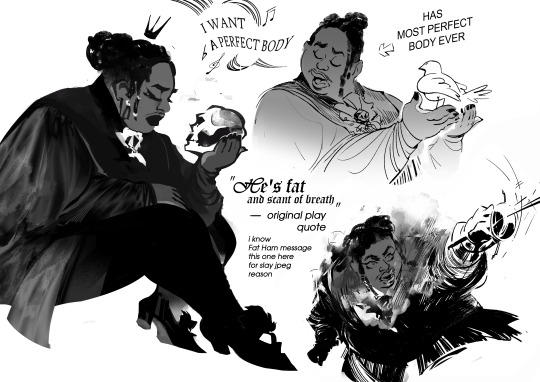
making Hamlet fanart in 2024, slapping Juicy (main hero of Fat Ham, a modern play, Hamlet version, played by black fat queer person) on char design i saw in old b&w film while listening MCR playlist was an experience
highly recommend. also pls watch/read Fat Ham upd: image description added! (in alt text, but also under the cut)
(Image Description: List of sketches with 3 drawings. The textures used here are elegant looks-like photo silk (for clothes), soft shades and gradients. Shapes are sinking in each other depth. No color, black and white
It's fanart depicting Hamlet character being combination of different versions of him from different media: fat black queer masculine person being elegant, wearing mascara and lipstick (took from modern play Fat Ham) wearing vintage royal clothes (took from old classic film). The narrative of sketches also mixed of modern play (Fat Ham) and classic one
There are 3 sketches:
First one. It's the character described above (TC in text further) sitting in side view. His eyes is closed and face has melancholic emotion. TC is holding a scull. There is a simple-shaped silhouette of crown above his head. This image represent classic play melancholic vibes of character fused with modern play appearance
Second sketch. It's TC singing, while holding white pigeon in hands. It had previous classic-modern fusion vibes + a little vibe of disney princess song (because of bird and emotion expression similar to disney musicals). By left side of this sketch is stylized speech babble with music notes symbols and deformed text, visualization of singing. The text saying: "I want a perfect body", quoting singing of TC from modern play. By the right side of sketch there is arrow pointing at character with text "has most perfect body ever".
Sketch Three. It's dynamic sketch of TC in a duel (opponent is out of the frame), waving a thin sword (idk how it in eng, in my first it's шпага, a sword but specific type of it). From the chest of TC it's going steam, like character is heated mechanism pushed to limits. The face of TC is strong and determined, with mouth wide open trying to catch breath. Near this sketch is text: (text starts here) "He is fat and scant of breath" - original play quote. i know Fat Ham message. this one [the sketch with duel] here for slay jpeg reason (text ends here).
End of Image description)
659 notes
·
View notes
Text
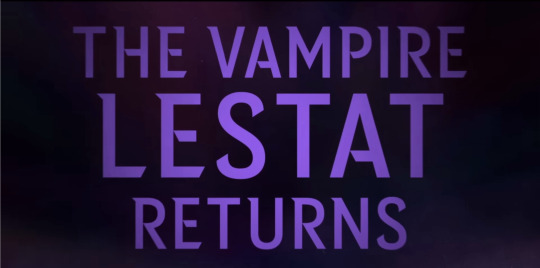
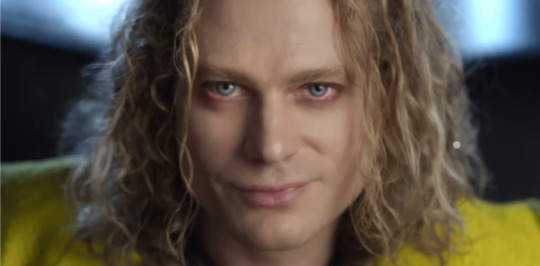
Listened to the full lyrics of Long Face and I love them, and I have some random thoughts on the lyrics. Interesting meaning behind the words with the piano analogy.
The words are obviously meant to represent Lestat’s thoughts about Louis, and what I find interesting is that they see each other the same way. Makes me wonder who wrote the song. Did Lestat write it to put himself in Louis shoes in an attempt to understand him, or in response to the scene from Season 1 episode 2 after Louis kills the agent and they burn the body.
Louis sees their differences in terms of the world they live in and how others see them. Creole/French; Black man/white man; Queer/????? Etc. Lestat on the other hand sees their differences in more idolized romantic terms…basically how they see each other not how the world sees them.
Or was the song written as a duet with maybe Louis also writing Lestat a letter with the latter putting it to music. It’s a tin foil idea but the lyrics sound almost how Louis would describe the two of them…not the other way around.
If you asked Louis how he saw Lestat, he would say that he was filled with fire and energy. And it turns out that’s how Lestat sees Louis. Fire to his calmer self (LOL). But then again, you never see yourself the way others see you.
On the other hand, Lestat is always questing for love and so on that level, the lyrics do makes sense. The song also matches up to his thoughts about Louis when he first sees him pull a knife on Paul. And while Lestat always wants to test the boundaries, he’s always been lonely, which definitely matches up to how he sees himself in the song. Louis fills the void in him.
The lyrics are all about two pianos creating a harmonious sound. Makes me wonder if that’s what he was practicing with his board and Siri. Was he writing the lyrics then. Lestat sees them as opposites who together create the perfect sound.
I’m piano (quiet)
And you’re forte (loud and strong)
You’re Allegro (lively)
I’m Andante (slow or moderate pace)
We’re Bolero (here he’s talking about Ravel’s Bolero, which is basically a repeated melody that builds and builds to include the entire orchestra. It was also originally published as a piano duet.
He’s also saying that his stage persona is not him. He’s an actor wearing makeup. Louis knows the real him but Louis keeps running and he’s calling him out on it. It also interesting that he says “I get fatter, when we breakup.” That suggests some type of spiraling on his part when he and Louis break up. He gets fatter on the blood. The Rock Documentary is for Louis.
I’m very interested to see where season three starts because the lyrics almost sound like they got back together and Louis did one of his bunker like in the books and just disappeared.
Of course, the song is likely just an encapsulation of their relationship as it will be covered going forward and not about any specific off screen event. If so, we’re in for a treat.
Season 3 can’t get here soon enough for me.
#interview with the vampire#louis de pointe du lac#lestat de lioncourt#the vampire chronicles#amc iwtv#iwtv s3#long face#vampire Lestat teaser#rockstar lestat#itwtv season 3
202 notes
·
View notes
Text
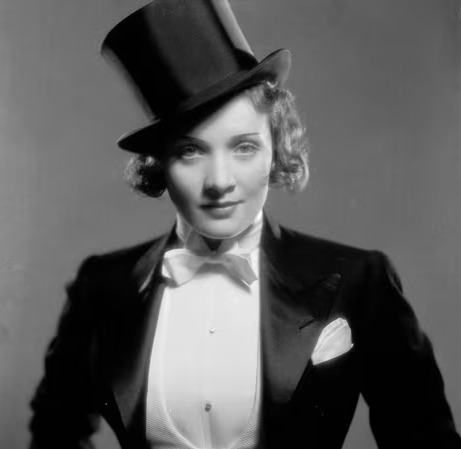
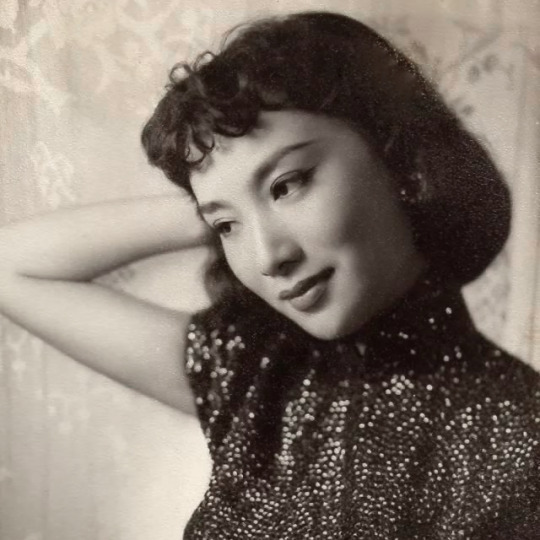
Propaganda
Marlene Dietrich (Shanghai Express, Witness for the Prosecution, Morocco)—Bisexual icon, super hot when dressed both masculine and feminine, lived up her life in the queer Berlin scene of the 1920s, central to the 'sewing circle' of the secret sapphic actresses of Old Hollywood, refused lucrative offers by the Nazis and helped Jews and others under persecution to escape Nazi Germany, the love of my life
Xia Meng, also known as Hsia Moog or Miranda Yang (Sunrise, Bride Hunter)—For those who are familiar with Hong Kong's early cinema, Xia Meng is THE leading woman of an era, the earliest "silver-screen goddess", "The Great Beauty" and "Audrey Hepburn of the East". Xia Meng starred in 38 films in her 17-year career, and famously had rarely any flops, from her first film at the age of 18 to her last at the age of 35. She was a rare all-round actress in Mandarin-language films, acting, singing, and dancing with an enchanting ease in films of diverse genres, from contemporary drama to period operas. She was regarded as the "crown princess" among the "Three Princesses of the Great Wall", the iconic leading stars of the Great Wall Movie Enterprises, which was Hong Kong's leading left-wing studio in the 1950s-60s. At the time, Hong Kong cinema had only just taken off, but Xia Meng's influence had already spread out to China, Singapore, etc. Overseas Chinese-language magazines and newspapers often featured her on their covers. The famous HK wuxia novelist Jin Yong had such a huge crush on her that he made up a whole fake identity as a nobody-screenwriter to join the Great Wall studio just so he can write scripts for her. He famously said, "No one has really seen how beautiful Xi Shi (one of the renowned Four Beauties of ancient China) is, I think she should be just like Xia Meng to live up to her name." In 1980, she returned to the HK film industry by forming the Bluebird Movie Enterprises. As a producer with a heart for the community, she wanted to make a film on the Vietnam War and the many Vietnam War refugees migrating to Hong Kong. She approached director Ann Hui and produced the debut film Boat People (1982), a globally successful movie and landmark feature for Hong Kong New Wave, which won several awards including the best picture and best director in the second Hong Kong Film Award. Years later, Ann Hui looked back on her collaboration with Xia Meng, "I'm very grateful to her for allowing me to make what is probably the best film I've ever made in my life."
This is round 5 of the tournament. All other polls in this bracket can be found here. Please reblog with further support of your beloved hot sexy vintage woman.
[additional propaganda submitted under the cut.]
Xia Meng:
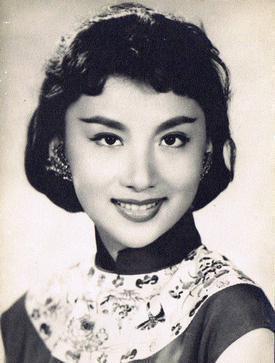
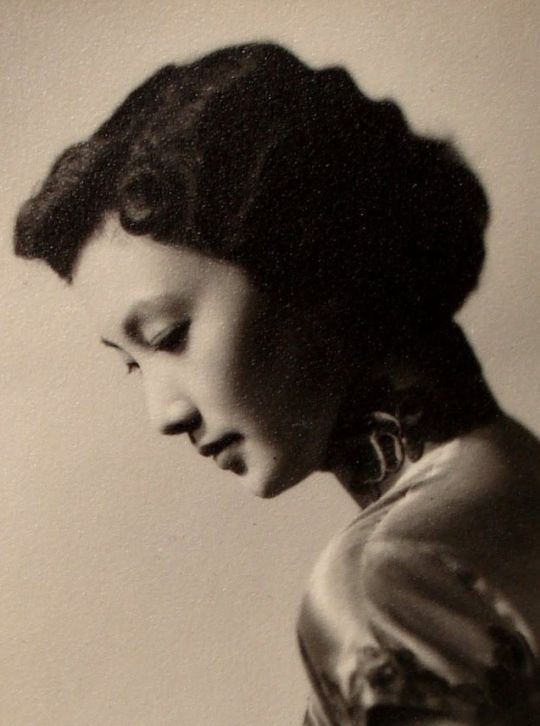
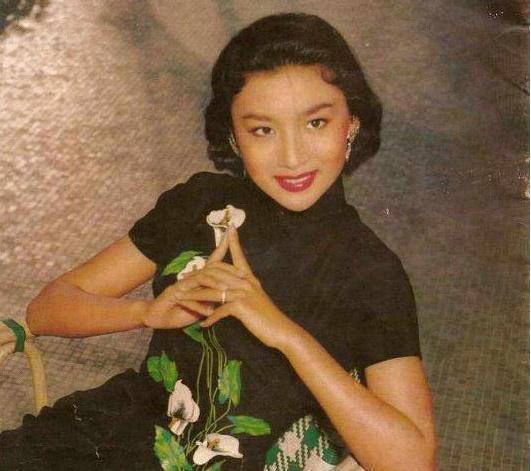
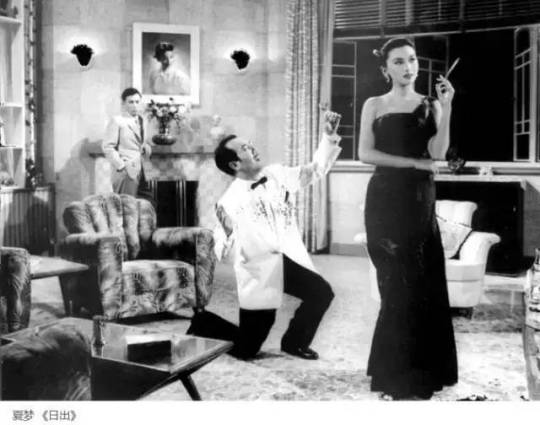

Marlene Dietrich:
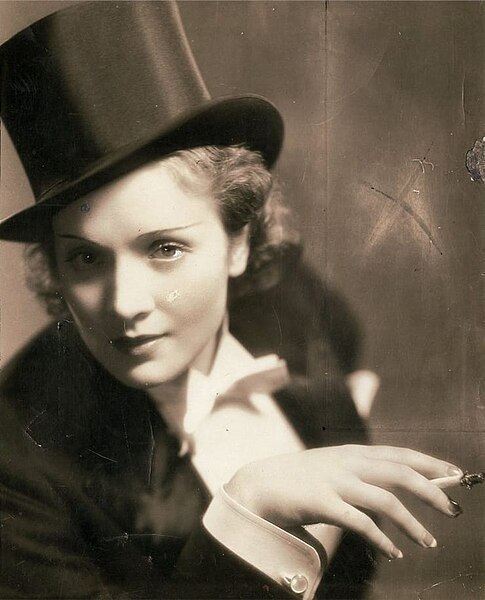
ms dietrich....ms dietrich pls.....sit on my face
its marlene dietrich!!!! queer legend, easily the hottest person to ever wear a tuxedo, that hot hot voice, those glamorous glamorous movies…. most famously she starred in a string of movies directed by josef von sternberg throughout the 1930s, beginning with the blue angel which catapulted her to stardom in the role of the cabaret singer lola lola. known for his exquisite eye for lighting, texture, imagery, von sternberg devoted himself over the course of their collaborations to acquiring exceptional skill at photographing dietrich herself in particular, a worthy direction in which to expend effort im sure we can all agree. she collaborated with many other great directors of the era as well, including rouben mamoulian (song of songs), frank borzage (desire), ernst lubitsch (angel), fritz lang (rancho notorious), and billy wilder (witness for the prosecution). the encyclopedia britannica entry im looking at while compiling this propaganda describes her as having an “aura of sophistication and languid sexuality” which✔️💯. born marie magdalene dietrich, she combined her first and middle names to coin the moniker “marlene”. she was a trendsetter in her incorporation of trousers, suits, and menswear into her wardrobe and her androgynous allure was often remarked upon. critic kenneth tynan wrote, “She has sex, but no particular gender. She has the bearing of a man; the characters she plays love power and wear trousers. Her masculinity appeals to women and her sexuality to men.” in the 1920s she enjoyed the vibrant queer nightlife of weimar berlin, visiting gay bars and drag balls, and in hollywood her love affairs with men and women were an open secret. she was an ardent opponent of nazi germany, refusing lucrative contacts offered her to make films there, raising money with billy wilder to help jews and dissidents escape, and undertaking extensive USO tours to entertain soldiers with an act that included her a playing musical saw and doing a mindreading routine she learned from orson welles. starting in the 50s and continuing into the mid-70s she worked largely as a cabaret artist touring the world to large audiences, employing burt bacharach as her musical arranger.
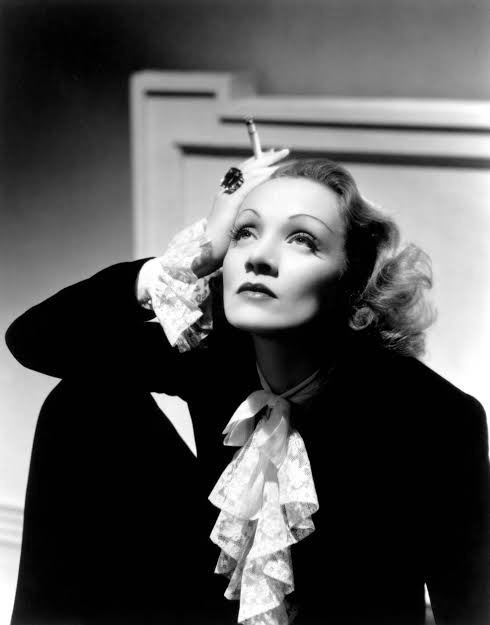
First of all, there are those publicity photos of her in a tux. Second of all, I have never been the same since knowing that she sent copies of those photos to her Berlin lovers signed "Daddy Marlene." Not only is she hot in all circumstances, but she can do everything from earthy to ice queen. Also, she kept getting sexy romantic lead parts in Hollywood after the age of 40, which would be rare even now. She hated Nazis, loved her friends, and had a sapphic social circle in Hollywood. She also had cheekbones that could cut glass and a voice that could melt you.
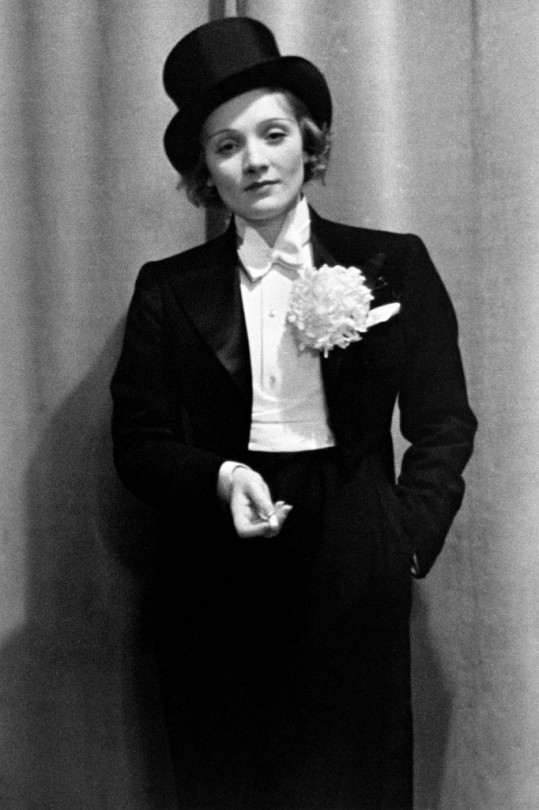
Her GENDER her looks her voice her everything
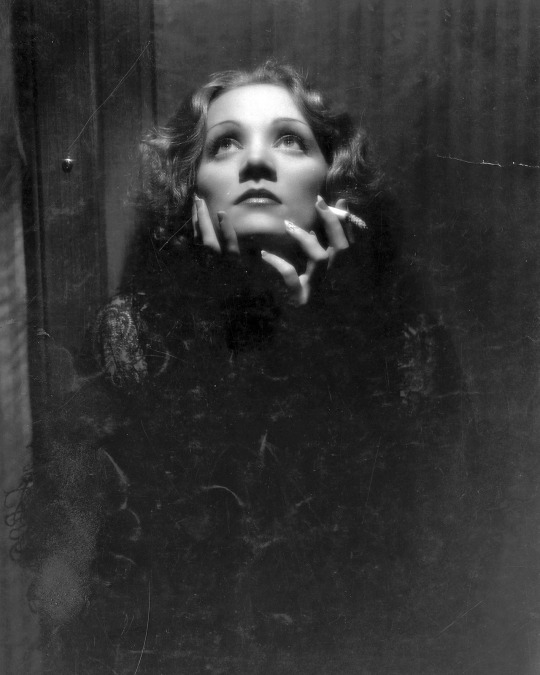
“In her films and record-breaking cabaret performances, Miss Dietrich artfully projected cool sophistication, self-mockery and infinite experience. Her sexuality was audacious, her wit was insolent and her manner was ageless. With a world-weary charm and a diaphanous gown showing off her celebrated legs, she was the quintessential cabaret entertainer of Weimar-era Germany.”
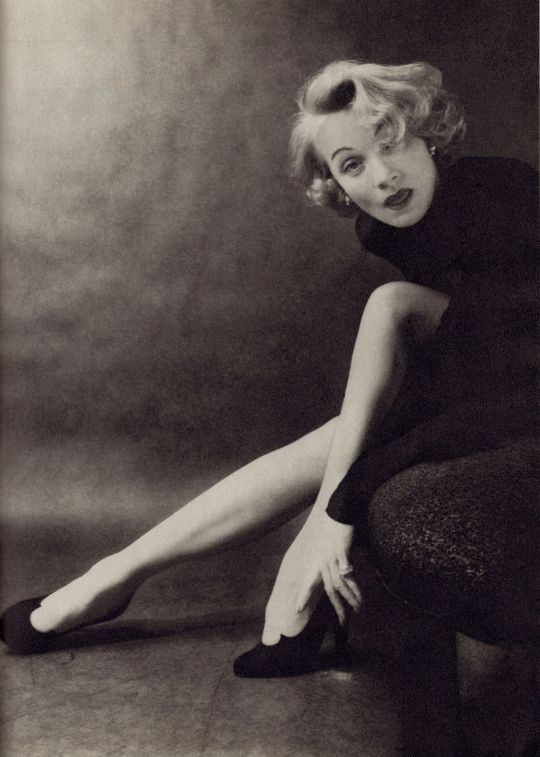
The bar scene in Morocco awoke something in me and ultimately changed my gender
youtube
"Her manner, the critic Kenneth Tynan wrote, was that of ‘a serpentine lasso whereby her voice casually winds itself around our most vulnerable fantasies.’ Her friend Maurice Chevalier said: ‘Dietrich is something that never existed before and may never exist again.’”
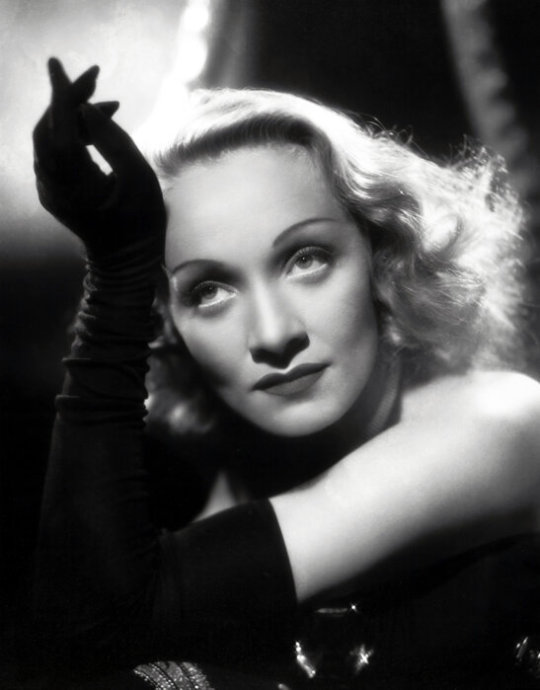
"Songstress, photographer, fashion icon, out bisexual phenom (notoriously stole Lupe Velez and Joan Crawford's men, and Errol Flynn's wife, had a torrid affair with Greta Garbo that ended in a 60-year feud, other notable conquests including Erich Maria Remarque -yes, the guy who wrote All Quiet on the Western Front- Douglas Fairbanks Junior, Claudette Colbert, Mercedes de Acosta, Edith Piaf), anti-Nazi activist. Marlene was a bitch - she had an open marriage for decades and one of her favorite things was making catty commentary about her current lover with her husband, and her relationship with her daughter was painful- but she was also immensely talented, a hard worker, an opponent of fascism and the hottest ice queen in Hollywood for a long time."
youtube
"She can sing! She can act! She told the Nazis to fuck off and became a US citizen out of spite! She worked with other German exiles to create a fund to help Jews and German dissidents escape (she donated an entire movie salary, about $450k, to the cause). She looks REALLY GOOD in a suit. If you're not convinced, please listen to her sing "Lili Marlene". Absolutely gorgeous woman with a gorgeous voice."
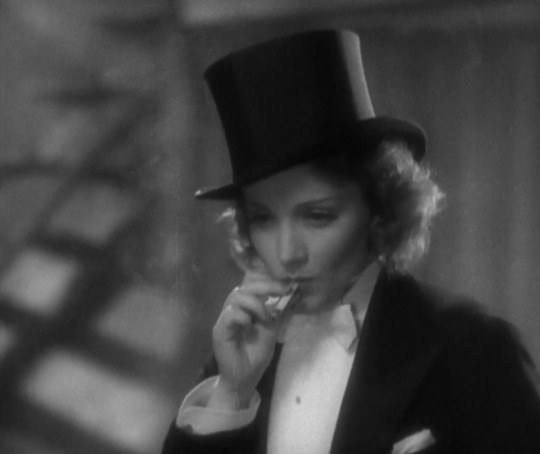
Gifset link
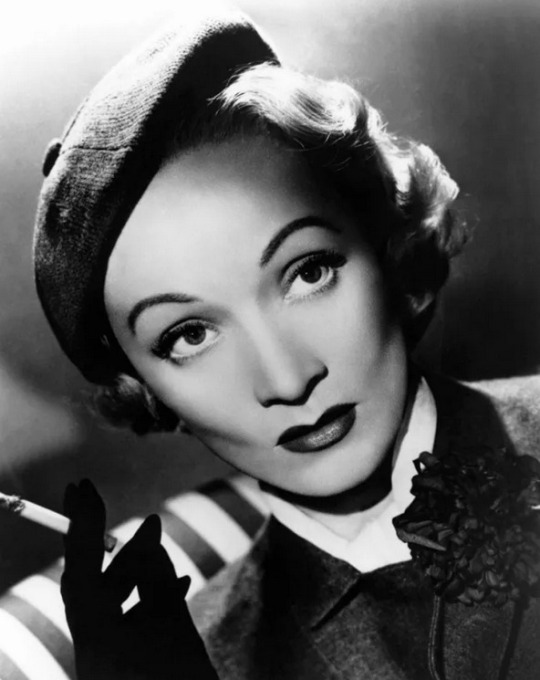
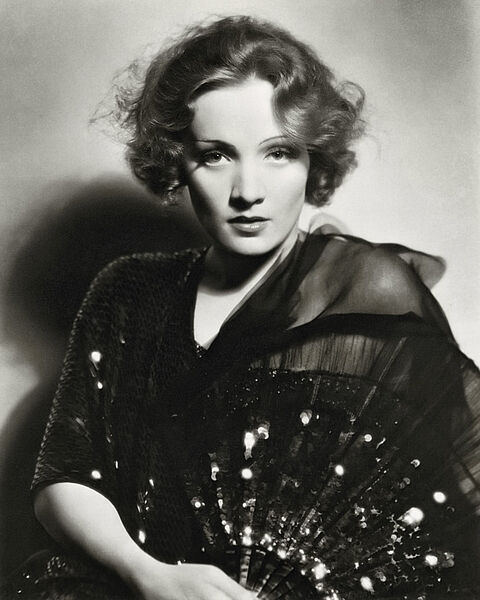
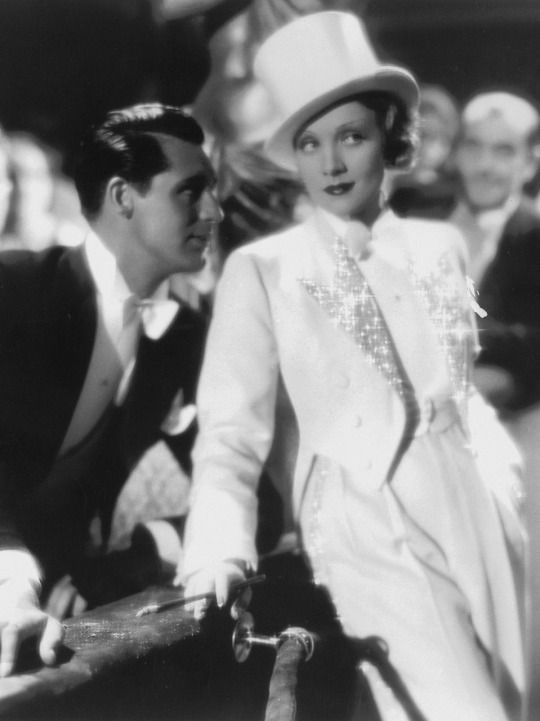
"Bisexual icon and Nazi-hater. Looks absolutely stunning in the suits she liked to wear. 'I dress for the image. Not for myself, not for the public, not for fashion, not for men'."
"would you not let her walk on you?"
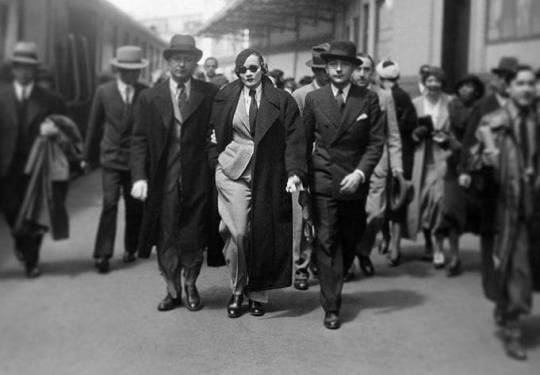
269 notes
·
View notes
Note
have you read (or did you enjoy) madeline miller's song of achilles? your post about the shitty book made me think to ask, cause i've been wanting to get into retelling/modern writing, but don't know where to start lol
So I don’t think I’m the right person to ask whether you should read The Song of Achilles or not. XD
I have read the book… buuut… I kinda didn’t finish it. Thing is, the book is good, no, really! Even though I dropped it, that doesn’t mean it’s a bad book per se, it’s just that I realized it wasn’t really written for me, and I lost interest in continuing.
There are a lot of good things in the book that I makes me genuinely recommend it. Miller has a fantastic way of describing emotions in a poetic, almost abstract manner. She paints scenes and moments beautifully, and I think that’s true the highlight of The Song of Achilles. So my verdict is you should give it a try! If not, then I'll could recommend you The Prince’s Psalm by Eric Shaw Quinn. Simply due to it's one of my favorites.
If you looking for something shorter, then Medusa by Jessie Burton.
Here’s the "nag section" (in case anyone’s curious why I dropped The Song of Achilles):
So the downside? The way Miller writes the queer relationship between Achilles and Patroclus is… very… very… heteronormative. It’s extremely clear that Patroclus is the "woman" and Achilles is the "man" in their dynamic. When they’re intimate, Achilles is the one doing and spurting, while Patroclus experiences "floral feelings" in his nether regions. The book isn’t explicit, but the text often accidentally describes them having straight sex. XD
There were so many moments while reading where I’d pause and think, "Oh, I can tell this is written by a straight woman who really likes the idea of a housewife." That’s not necessarily a bad thing, it’s just the vibe I got. For comparison, when I read The Prince’s Psalm by Eric Shaw Quinn, I kept thinking, "This is written by a gay man who really loves tall, broad-shouldered, masculine men who make him feel small." It’s oddly similar to each other, Patroclus and David share the same character traits. Both are small insecure men, it’s just that the authors take different approaches to how they depict it.
The reason I dropped The Song of Achilles was that I just wasn’t interested in Patroclus being portrayed as this sweet, insecure, self-hating boy who sits in the tent all day and gets happy when Achilles comes back after a hard earnd work in the battlefield. I expected something more fluid in their dynamic. Don’t get me wrong, insecure protagonists are fine! For example, in The Prince’s Psalm, David is insecure too, but he also resents being seen as fragile by other men around him. The book explores that tension in David and Jonathan’s relationship. David kills Goliath not out of honor or duty, but because he wants to prove Jonathan wrong, even spite him, he did it out of anger. David is insecure, which also makes him envious. He gets angry easily but also quick to forgive. He is an romantic person, who loves the idea of Jonathan proposing to him and being swept up but he also wants to be seen as a "manly" man. He is faithful but when he have the conversation with Jonathan about their bounderies, they come to the conclution together who they can sleep with, no men and only women if you are married to them. David changes and the irony with it is that his change is also a cause why Jonathan died.
For Patroclus, I think he is very flat. He is incesure and he is a good boy. And sadly I really don't remember if there was anything else than that. Most of his reaction is based on Achilles actions. The reason why he is good with fighting is cuz gods are helping him. The reason why Achilles like Patroclus so much is... I don't know really, the text only describes how pretty Achilles is, it very superficial. Patroclus likes Achilles becasue Achilles isnt Patroclus.
Here’s the funny thing…
After all that, I still recommend The Song of Achilles! There's a reason why there are so many retelling books now. I genuinely believe The Prince's Psalm wouldn't have been published if The Song of Achilles hadn't existed. The book is a romanticization, and it was written around 2008 or so. That explains why Miller wrote them like that. I see the heteronormative dynamic between Achilles and Patroclus as simply a product of its time.
137 notes
·
View notes
Note
Watched the Swiftologist’s 1 hr long anti gaylor video and he described You Need to Calm Down as the only evidence we need that’s she’s straight because a queer person would not have written that song. Also he points out that she said she’s not several times. Good video
I mean yeah, the second biggest hole in the entire Gaylor theory is that Swift trying to stay in the closet while simultaneously spending YEARS concocting Riddler-esque puzzles to signal that she's queer to the loudest fandom on earth is that it's counterintuitive to the point of abject stupidity.
the first biggest hole is of course her numerous denials that she's queer.
154 notes
·
View notes
Text
Bob Dylan & Queerness
A post about how Dylan resonates with the Queer audience:
Hey everyone! As Pride Month ends, I wanted to talk a bit about Bob Dylan and Queerness.
Dylan has been openly supportive of the LGBTQ community throughout his career. In the 1960s, he was openly friends with and supported Queer poets, such as Allen Ginsberg and Paul Clayton. Ginsberg specifically wrote many poems about being gay that resonated with a lot of otherwise unseen queer people, especially during the 1950s when LGBTQ people faced discrimination with the Lavender Scare being promoted by the government. In general, Dylan was very comfortable with Queer people in the 1960s, which was apart of an important shift in terms of attitude away from being scared of LGBTQ+ people. Just by supporting openly gay people, Dylan was apart of the movement towards Queer acceptance. A lot of Queer people felt comfort in his work and his style. Dylan was also quite androgynous, and this connection between androgyny and Queerness was pointed out in the 2007 biopic “I’m Not There” (dir. Todd Haynes), where 1965-66 Dylan was portrayed by Cate Blanchett. Her Dylan, AKA Jude Quinn, has resonated with a lot of LGBTQ people as Queer representation. Jude Quinn’s arc in the movie is comparable to those of Trans individuals; Quinn even has a “deadname”, similar to how Dylan tried to hide his real name and identity from the general public in the 60s. By using a female actress for this role, Haynes furthers the connection between 1966 Dylan and Transness. Dylan has also said in interviews that he believes love isn’t necessarily between a man and a woman.
In 1975, Dylan went on the Rolling Thunder Revue tour with a bunch of his friends, including Joan Baez. The way Dylan and Baez dressed has been compared to Drag, a Queer art form; they wore exaggerated makeup, wild outfits, and freaky masks. Dylan’s outfits were still androgynous, but even more “out there”, and certainly reminiscent of Drag and Queer culture.
In 1988, Dylan wrote the song “Tweeter and the Monkey Man”, one of his most openly Queer songs, with the Traveling Wilburys. The song has an explicitly transgender character, Tweeter, as she is described as having been a “boy scout” before she served in the Vietnam War. In addition, the antagonist of the song, Jan, misgenders Tweeter. This is just one of many examples of Dylan incorporating Queerness into his work, especially when it wasn’t as accepted.
One of Dylan’s daughters, Desiree, is also openly gay and had a wife. She has said that her Dad has always supported her, and she herself has been very outspoken about Queer issues (recently, she made a post about supporting the Trans community). In addition, a few years ago, for Record Store Day, as part of a LGBTQ+ charity project, Dylan recorded the classic “She’s Funny That Way”, but changed the pronoun to “he”. The creator of the project has said only Dylan could bring the song to a “simmering, homoerotic heat”.
In general, Dylan has always been supportive of LGBTQ+ people, which have allowed Queer people like me to feel comfort and seen in his work.
To get a bit more personal, I personally have felt more comfortable in my Queerness because of Dylan. I know a lot of my posts on here are partly jokes, but I truly believe that Bob is Queer, and that this is represented in his songs and persona. Many of his friends have also been casual about the fact he may have dated men, and Dylan himself has said he had relations with Marlon Brando. The way Dylan expresses gender and sexuality is one truly only a Queer person could really express. And I identify a lot with that expression. My gender identity isn’t exactly something I talk about a lot, and I present as just cis in my real life because honestly, it’s easier. There have been hundreds of anti trans bills passed in the US just in the past few years and transphobia is rampant. I want to express myself more though and a big part of my inspiration for that is Dylan’s expression of gender. I genuinely identify so much with him and his gender. I know it sounds silly and a bit crazy, but sometimes I see my gender as “whatever Bob Dylan has got going on”. I feel euphoric when I dress like him (I have a brown jacket like his and dressed like his Rolling Thunder Revue fit for Halloween). Dylan’s gender feels so relaxed and natural to him and I really aspire to that someday. I’m just… obsessed with Dylan’s androgyny like I want to look like him so badly sometimes. Being transgender is something I’ve had to come to terms with for many years but I never really knew what I wanted for myself until I really found Bob Dylan. Again I know that seems a bit crazy but like… he truly has helped me understand my Queerness better.
Anyways thank you Bob Dylan for inventing gay people!!!!!!!! Happy pride month!!!!!!!!!
44 notes
·
View notes